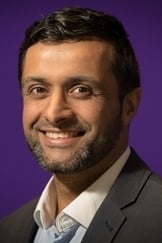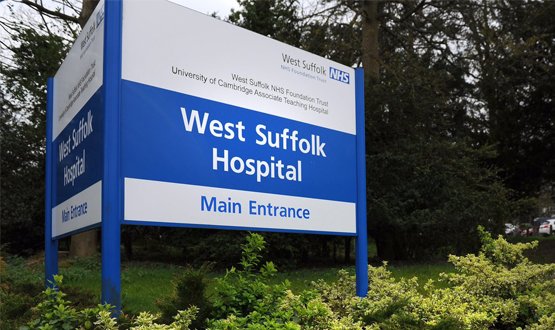Daz Ahmed, head of Healthcare and Public Sector UK&I at Extreme Networks outlines how West Suffolk has invested in infrastructure to enable it to achieve its paperfree and e-Care EPR ambitions.
Strengthening a network so as to go digital
When NHS England announced its ambition for healthcare to be paper free at the point of care by 2020, it used research from Anderson Consulting suggesting the NHS could save billions by digitising, but achieving such savings remains a major challenge for NHS organisations.
At West Suffolk NHS Foundation Trust, realising financial savings through going paperless has not only mean introducing an electronic patient record, it’s also required strengthening the underlying infrastructure to support a successful implementation.
Maintaining reputation through a big transformation
The trust’s EPR programme, dubbed e-Care, has been adopted by staff across both inpatient and outpatient services. The aim is to maintain and enhance the trust’s reputation for high quality care – West Suffolk Hospital was recently named one of the top 40 hospitals by independent healthcare intelligence provider CHKS and the trust rated as outstanding by the Care Quality Commission.
New changes means new challenges
IT staff were conscious that digitising patient records would drive a number of new challenges to the fore. The implementation of the systems drove a number of changes. Firstly, there was the introduction of an additional 200 devices across all clinical areas of the hospital, including Workstations on Wheels (WoWs) and rugged tablet PCs. To ensure that everyone could access the new system, the hospital planned to expand the existing network across its main campus and remote sites. Additionally, the IT team knew that was an increased number of devices and a higher number of staff accessing the network, a big challenge would be cybersecurity — specifically ensuring that medical devices are secure and that it wouldn’t be vulnerable from attack.
With just a small IT team supporting the growing network and its new e-Care applications, the trust turned to a vendor partner to ensure the network ran seamlessly.
A decision was taken to implement the full portfolio offered by Extreme Networks, as integrated by IT solutions provider, NetConnection Systems.
Integration and scale
A decision was taken to implement the full portfolio offered by Extreme Networks. By using these solutions, and the management software provided by the company, the trust gained total visibility and control of all the users, devices, and applications running across its network. Additionally, to support the hospital’s plans to expand wireless access to new offsite locations (which would provide community services like paediatric speech and language therapy), Extreme Networks offered scalable technology which would match the hospital’s growth.
Reaping the benefits
Following the implementation of the EPR at West Suffolk Hospital and the strengthening of the network, a number of benefits have become apparent for both staff and patients alike.
One of the most prevalent advantages has been much better collaboration among the hospital staff including clinicians, nurses and consultants who are seamlessly connected at all times. Thanks to the access to mobile devices and wearables as well as a reliably consistent network, getting a message to someone else in the hospital is now quick and easy without the administrative burden.
Additionally, the IT team at West Suffolk now has greater visibility and control of all applications running over its network. In a network of more than 4,500 people, the trust’s IT staff can manage and view the entire network from one central location – making it much easier to spot and tackle problems as and when they arise.
Finally and most importantly, West Suffolk Hospital’s patients are extremely happy with the change – recent surveys have shown increased levels of patient satisfaction.

Daz Ahmed is the head of Healthcare and Public Sector UK&I at Extreme Networks.


20 April 2017 @ 19:05
Great work
20 April 2017 @ 18:30
Congratulations to Mr.Dahwood Ahmed and his team! I am sure UK &I will see a big change of digitizing solution in coming days especially in health care and public sector.